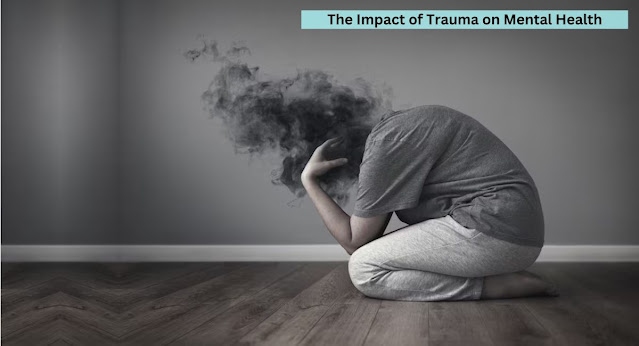The Impact Of Trauma On Mental Health Understanding The Invisible Scars | Mental Health Care US
Trauma is an all-too-common experience in the human journey, affecting millions of lives worldwide. It can result from a range of distressing events, such as physical or emotional abuse, accidents, loss of a loved one, or combat exposure. These events leave deep emotional wounds that are often unseen but have a profound impact on mental health. Here, we delve into the effects of trauma on mental well-being and explore strategies for healing and recovery.
The Effects of Trauma on Mental Health
One of the most well-known effects of trauma is Post-Traumatic Stress Disorder (PTSD). Those who suffer from PTSD experience recurring and distressing memories, nightmares, and flashbacks of the traumatic event, leading to severe anxiety and fear. The constant feeling of being on edge can make it difficult for individuals to lead a normal life and engage in everyday activities.
Trauma can also lead to depression. The emotional pain and distress caused by traumatic events can trigger feelings of sadness, hopelessness, and emptiness. It can drain the joy out of everyday life and make it challenging to find pleasure in activities that were once enjoyable. People who have experienced trauma may withdraw from social interactions, further exacerbating feelings of isolation and loneliness.
Moreover, trauma can cause various anxiety disorders. Persistent worry, panic attacks, and excessive fear can become a daily struggle for those who have experienced trauma. Simple tasks may become overwhelming, and facing triggers related to the traumatic event can lead to severe emotional distress.
In an attempt to cope with the pain, some individuals may turn to substance abuse. Drugs or alcohol may provide temporary relief from the overwhelming emotions caused by trauma. However, this coping mechanism can quickly spiral into addiction and create even more significant problems for mental health and overall well-being.
Another consequence of trauma is disassociation. To protect themselves from the distress of reliving traumatic memories, some individuals may disassociate from their emotions and memories. This disconnection from reality and their own sense of identity can create further challenges in relationships and daily functioning.
Trauma often disrupts sleep patterns, leading to sleep disturbances such as insomnia and frequent nightmares. The lack of restorative sleep can have a significant negative impact on mental health, exacerbating symptoms of anxiety and depression.
Furthermore, traumatic experiences can make it difficult for individuals to regulate their emotions, leading to emotional instability. Mood swings and heightened reactivity to triggers are common, making it challenging to maintain stable relationships and overall emotional well-being.
Healing from Trauma
Recovering from trauma is a unique journey for each individual, but there are strategies that can facilitate healing and provide a path to a healthier mental state.
The first step in the healing process is to seek professional help. A mental health professional can provide a safe space to process emotions, explore the impact of trauma on one’s life, and develop coping strategies for dealing with triggers and distressing memories. Therapy, such as cognitive-behavioral therapy (CBT) or eye movement desensitization and reprocessing (EMDR), has shown to be effective in treating trauma-related disorders.
Building a support system is also crucial in the healing process. Surrounding yourself with understanding and empathetic individuals can create a strong network of support, fostering healing and recovery. Participating in support groups with others who have experienced trauma can provide a sense of belonging and validation.
Practicing mindfulness and meditation can help individuals become aware of their emotions and thoughts without judgment, promoting self-compassion and inner peace. Mindfulness techniques can be particularly helpful in reducing stress and anxiety related to trauma triggers.
Engaging in creative outlets can serve as a therapeutic way to process trauma and emotions. Expressing feelings through art, writing, or music can provide an avenue for release and a sense of control over one’s experiences.
Conclusion: The impact of trauma on mental health should not be underestimated. It can leave lasting scars on the mind, heart, and soul. However, by understanding the effects of trauma and seeking appropriate help and support, it is possible to embark on a journey of healing and recovery. Remember, you are not alone, and there is hope for a brighter future beyond the shadows of trauma. Take the first step towards healing and embrace the potential for a healthier, happier life. With the right resources, coping mechanisms, and support, it is possible to regain control of your life and move forward with newfound strength and resilience.

Comments
Post a Comment